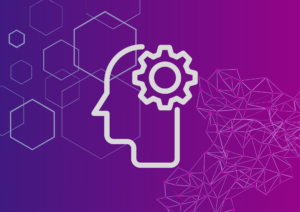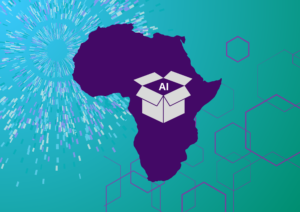On the occasion of UNCTAD eCommerce Week the Datasphere Initiative and D4D Global Research Hub (D4D.net) organized a session “Designing innovative data governance solutions for the global south”. The session brought together speakers from Smart Africa, the Government of Japan’s Ministry of Economy, Trade and Industry, Latin American Initiative for Open Data, and the Datasphere Initiative to exchange on the opportunities and challenges data is bringing to the global south and how these can be addressed through the design of new and agile data governance solutions.
Key takeaways from the session included:
- Data is not the new oil but a backbone of economies and societies
- Common goals and coherent policies are needed so data can serve economic and societal objectives.
- Multistakeholder cooperation and evidence-based analysis are necessary to build trust which is subjective and unique to different cultures and contexts.
- New and more agile models of data governance are providing innovative solutions.
Data is not the new oil but a backbone of economies and societies.
The session kicked off with a bold assertion that there is no digital without data. Thelma Efua Quaye, Head of Digital Infrastructure and Capacity Building, Smart Africa, explained why she believes that data is not the new oil, but rather a non-infinite resource. For many economies, data lies at the core of digital transformation and Ms. Quaye shared some of the challenges experienced in Africa “We also need to talk about nonpersonal data and how to harness the benefits of use and sharing across borders,” she said. The fragmented landscape of data governance frameworks across the region was pointed to as one of the factors slowing down business investment and digital transformation in the region.
Fabrizio Scrollini, Executive Director of the Latin American Open Data Initiative, complemented Ms. Quaye’s intervention by explaining how we need to steer the debate on data into the public interest by using evidence-based analysis and analogies in a more subtle and less definitive fashion. Data is not only about assets but also about rights, inclusivity, and how governments, businesses, and societies act on data. Sharing his experience working on open data initiatives, Mr. Scrollini explained how open data (in a legal and technical sense) could provide solutions to several development challenges and can be applied widely in the public sector. However, experience has shown that streamlined and coherent policies are important to fully realize the potential of open data initiatives.
Common goals and coherent policies are needed so data can serve economic and societal objectives.
While more than 80 countries in the world do have open data policies, in the last few years there has been a general push against openness. Mr. Scrollini attributed this to personal data scandals leading to questions about how to regulate and structure the incentives for data to serve the right economic and societal outputs. On tools to track policy developments taking place around the world, Mr. Scrollini provided an example of the Global Data Barometer which “creates a baseline for this debate looking at regulation, capacity, and impact of data use in the public interest” he said.
Other initiatives seeking to contribute to reframing how we think about data governance were shared during the session such as the Data Values Project by Global Partnership for Sustainable Development Data. Based on consultation with 250+ individuals, and 150 organizations from 55+ countries the campaign sought to develop norms and discuss rights implications for data governance. “We need to remember, especially at the government and local level, there is a need for informal mechanisms to exist for people to be able to hold those in power accountable, not only on paper but also in reality,” said Martina Barbero, Policy Manager, Global Partnership for Sustainable Development Data.
Multistakeholder cooperation and evidence-based analysis are necessary to build trust which is subjective and unique to different cultures and contexts.
Speakers also drew on more formal data governance concepts such as Data Free Flow with Trust as introduced at the Osaka Japan G20 presidency. “Free flow data with trust means that data can flow if there is trust among the actors: but the question is what do you mean by trust and how can this be ensured?” said Maiko Meguro Principal Deputy Director, Office of International Strategy and Affairs, Commerce and Information Policy Bureau, METI, Japan.
One of the challenges in finding data governance solutions is that many countries and jurisdictions have different ideas of how privacy and national security should be protected including what is the scope, making it difficult to find convergence. Ms. Meguro underlined that the Government of Japan sees the role of multistakeholder engagement as an important enabler of having Data Free Flow with Trust embodied at the international level. Evidence-based examples and multistakeholder exchange on policymaking are important to understanding the barriers to data flows.
New and more agile models of data governance are providing innovative solutions.
Sharing examples of the new and agile data governance solutions that the Datasphere Initiative is designing, Executive Director of the Datasphere Initiative Lorrayne Porcincula encouraged participants to think about the data ecosystem as not only the datasets but also the relations we are immersed in with data. “Mapping the different types of organizations working on data as well as designing new technical and regulatory solutions can help actors experiment and cooperate in new spaces and contexts,” she said. The Datasphere Initiative recently produced a Datasphere Governance Atlas report mapping organizations working in the area of data governance and is examining the model of sandboxes for data (both regulatory and operational), what they stand for, and how they could offer workable solutions for cross-border data flows.
—
Read more about UNCTAD eCommerce Week
Watch the recording of the session





